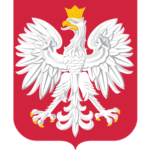Foreigners – important changes for international candidates applying for studies in the 2025/2026 academic year
The Act of April 4, 2025, on Amending Certain Acts to Eliminate Irregularities in the Visa System of the Republic of Poland introduces numerous changes concerning the admission of foreign candidates starting from the 2025/2026 academic year. The most significant changes affect international candidates applying on the basis of educational documents issued in countries other than the EU, OECD, EFTA, EEA [1], as well as in countries not covered by international agreements [2].
Educational documents issued outside Poland can be divided into two types:
- documents entitling the holder to apply directly for studies in Poland (recognised in Poland automatically on the basis of art. 326a of the Law on Higher Education and Science)
and
- documents that are subject to the procedure of recognition as entitling to study in Poland (must be recognised by Polish authorities before applying to studies).
Documents entitling the holder to apply directly for studies in Poland:
- IB diploma (International Baccalaureate) issued in Geneva (Switzerland),
- EB diploma (European Baccalaureate) issued by the European Schools – in accordance with the Convention defining the Statute of the European Schools,
- documents issued in the member states of the EU, OECD, EFTA, EEA: Australia, Austria, Belgium, Bulgaria, Chile, Croatia, Cyprus, Czech Republic, Denmark, Estonia, Finland, France, Greece, Spain, the Netherlands, Ireland, Iceland, Israel, Japan, Canada, Colombia, Costa Rica, South Korea, Lithuania, Liechtenstein, Luxembourg, Latvia, Malta, Mexico, Germany, Norway, New Zealand, Poland, Portugal, Romania, Slovakia, Slovenia, Switzerland, Sweden, Turkey, USA, Hungary, the United Kingdom, Italy,
- documents issued in countries covered by international agreements: Ukraine, China,
- higher education diplomas recognised as equivalent to the corresponding Polish diploma through a nostrification procedure carried out in Poland.
Documents other than those listed above do not entitle the holder to apply directly for studies in Poland and must undergo the recognition procedure in order to confirm the eligibility to undertake studies in Poland.
Definitions and explanations
[1] According to current legal regulations, citizens of the EU, EFTA, and EEA are citizens of the following countries: Austria, Belgium, Bulgaria, Croatia, Cyprus, Czech Republic, Denmark, Estonia, Finland, France, Greece, Spain, Netherlands, Ireland, Lithuania, Liechtenstein, Luxembourg, Latvia, Malta, Germany, Poland, Portugal, Romania, Slovakia, Slovenia, Switzerland, Sweden, Hungary, the United Kingdom, and Italy.
[2] Countries covered by international agreements: Ukraine, China.





